Emulation proves the inevitable Achilles' Heel of Qualcomm's new PC chips when it comes to gaming
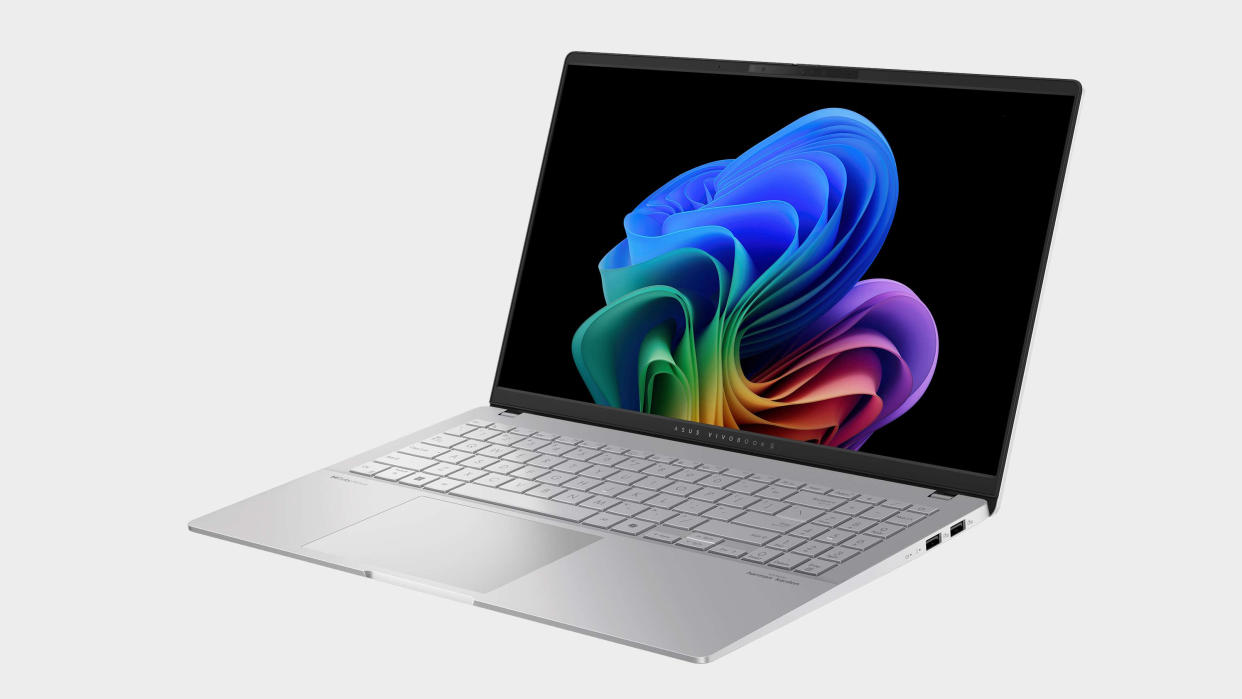
Two weeks ago I was in a hotel in downtown Taipei prodding some of Qualcomm's new Snapdragon X Elite laptops, and I was impressed with how well they ran Baldur's Gate 3 and Metro Exodus. Both are compiled for the x86 CPU architecture, yet the co-created Microsoft/Qualcomm Prism emulation layer still delivered impressive gaming performance from proper PC games.
And I was happy. A few days later I was happier still as I checked out the Works on WoA microsite to see about game compatibility and this is what I saw:
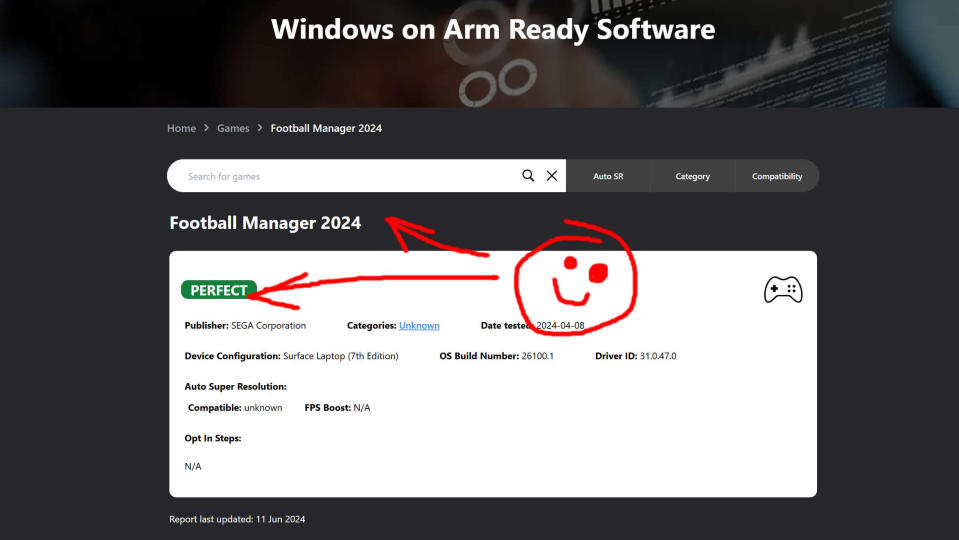
But today, now that the early reviews are starting to trickle out—either in sponsored form or otherwise—the news isn't nearly so promising. And it's nothing to do with the brutal bout of Computex showvid-19 I came back with; it's all about the performance hit when it comes to gaming under that emulation layer.
Dave2D's video offers up some okay benchmark figures at the 1080p Low preset level on a selection of games but goes on to highlight that "there's also occasional stutter in the games. I don't think it's stutter from a hardware thing, I'm convinced it's completely a software issue. Because the thermals were fine—and sometimes you'd go for a long stretch with a sustained frame rate—but eventually you get a stutter."
Even the sponsored Matthew Moniz video about the X Elite-powered Asus Vivobook S 15—paid for by Asus—notes that gaming is the real weak point of the Qualcomm chips. Fortnite refuses to load (which I believe is an EAC issue from talking to some Qualcomm folk around Computex) and they highlight Diablo 4 running fine for around a minute or so before suffering a catastrophic Prism crash.
Overwatch will work, but is seemingly locked to 1280 x 1080 and regularly stutters because "it feels like it's translating on the fly." Moniz goes on to state that this is the real issue with the ARM-based chips. "No matter what game you play on this, if it's been optimised for x86, you're going to take a performance hit… Now, if you're playing an Arm game, like World of Warcraft, it's good."
"But if you plan on doing any sort of gaming you're not going to have the best experience right now."
Now, none of this should come as a surprise really. When it was first announced Qualcomm was making a PC chip and would be releasing laptop silicon to run Windows with an emulation layer for x86 applications, not a single one of us was like 'yeah, that's going to be great for PC gaming.'
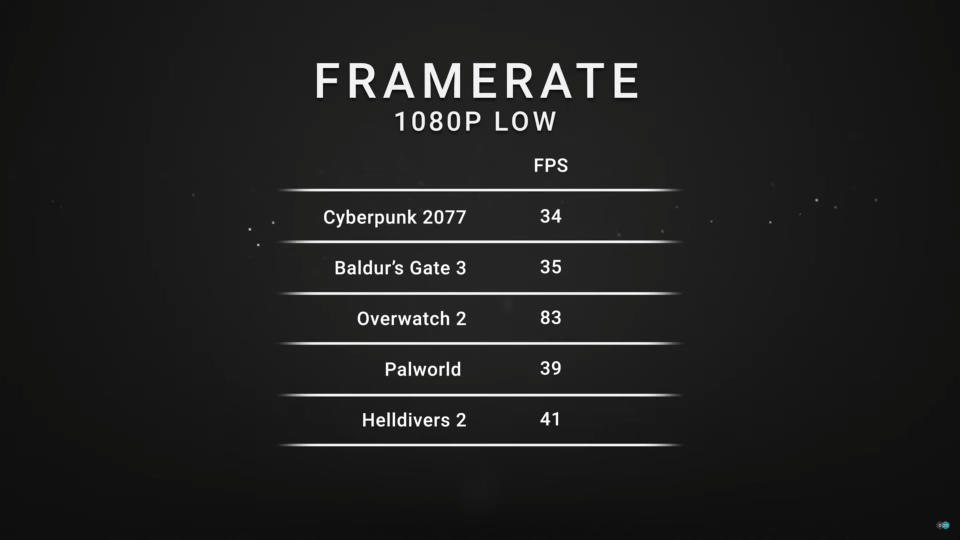
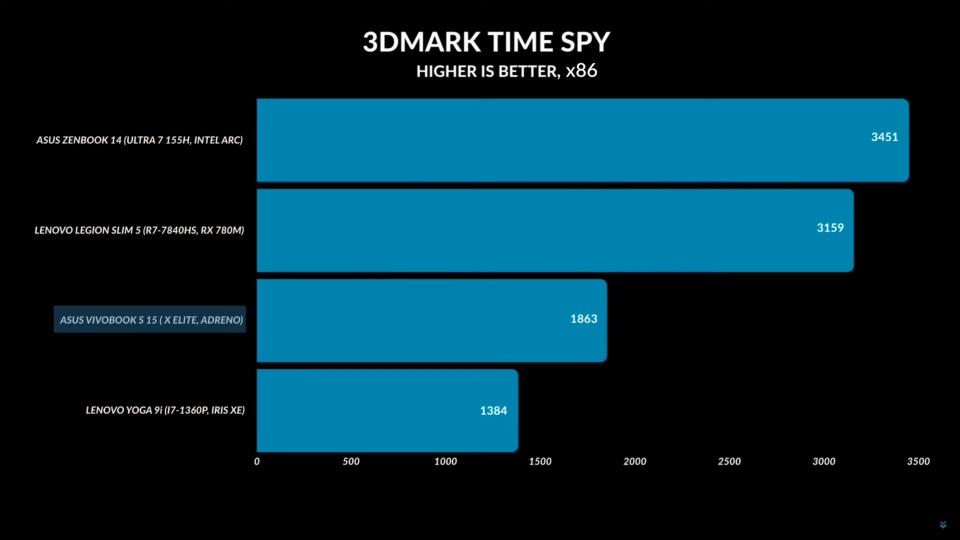
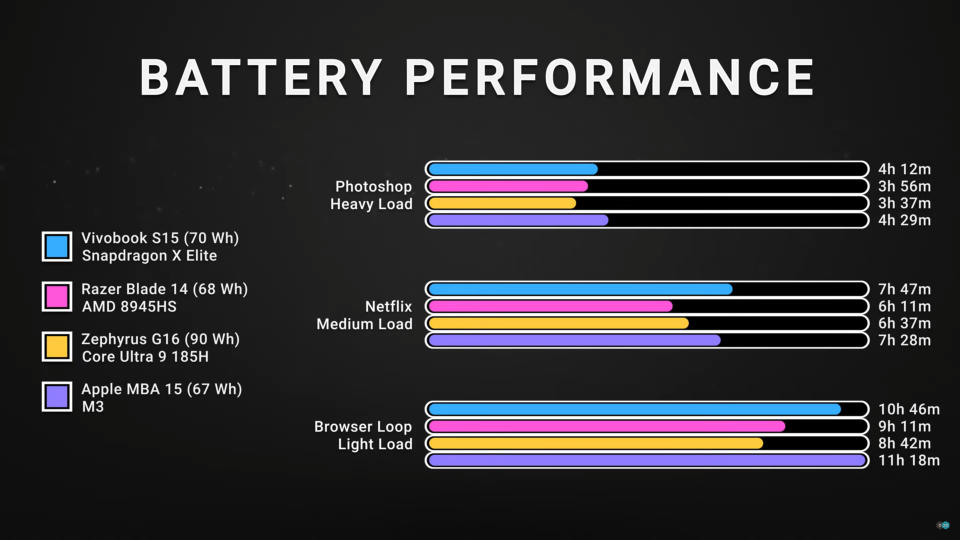
And yet Qualcomm, bizarrely, has made it a part of every recent event based around its new processor range. There was no need, more so if you knew you were going to be leaving a ton of relative gaming performance on the table as a result of the emulation layer. Maybe it was surprised that so many games did just work, and wanted to shout about that, but if the performance is half that of an equivalent x86 machine it's a tough one to get too excited about right now.
I will say I was kinda hoping for something more exciting when it came to the battery life, too, especially given how efficient the X Elite architecture was supposed to be, but the comparison with the latest Intel and AMD x86 chips isn't exactly night and day. The Vivobook S15 does have a smaller battery than the Intel and delivers longer uptime under load, but it's not exactly revolutionary. If I was going to suffer a performance hit I'd at least want something in return.
Your next machine
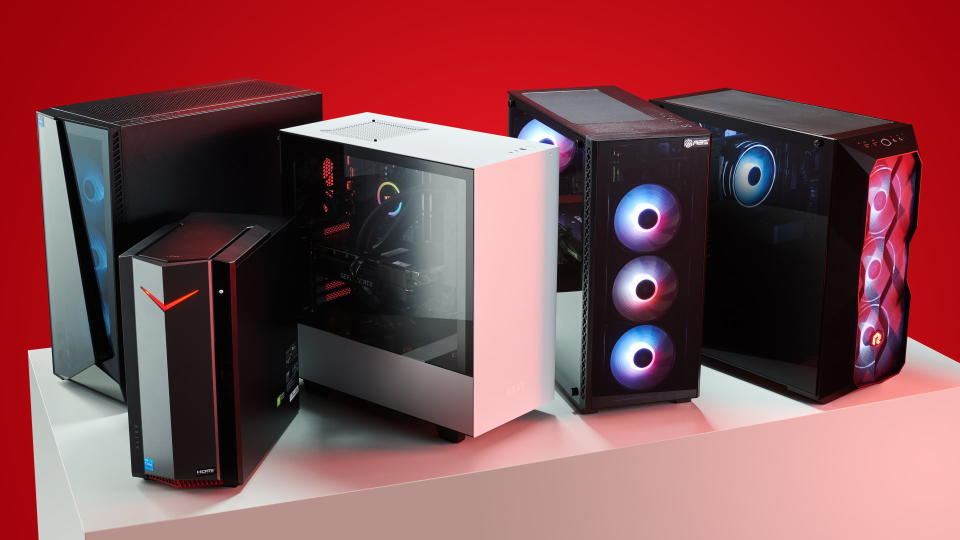
Best gaming PC: The top pre-built machines.
Best gaming laptop: Great devices for mobile gaming.
What Dave2D does say, however, is the sleep performance of the X Elite processor is very impressive, and that is absolutely something you cannot say for any laptop running Windows in an x86 environment. Shut the lid of your laptop and you can be pretty confident after a day of sleep it will have run the battery dry. The X Elite, however, reportedly will only lose something like 1 or 2% of its battery life overnight.
So it ain't all bad, and the thing to note is that this is early doors for Qualcomm's new ARM-based PC chip adventure. Reports are the hardware is very good, but it's all about the software and the software emulation layers. And those are things that have a good chance of being improved over time.
We haven't yet had more than a hands-on experience with a few different Snapdragon X Elite machines so far, and they are still notable for their absence from our labs. But we hope to have our own reviews live soon.


